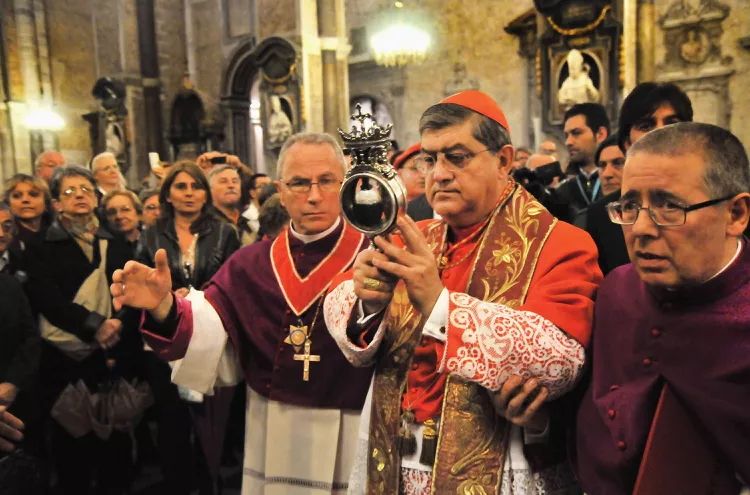1. Discover Naples’ Most Important Celebration
2. History
3. The Religious Ceremony
4. The Festival Celebration
5. Additional Ceremonies
6. The Miracle
Discover Naples’ Most Important Celebration

If you plan to visit Naples, Italy in mid-September, it is essential to secure your accommodations well in advance. September 19th marks the annual Festa di San Gennaro, the city’s most significant religious festival. This event attracts substantial crowds of both locals and visitors, showcasing the rich cultural heritage of Naples.
A San Gennaro festival also takes place in September outside of Italy in various Italian American communities, including New York and Los Angeles, among other cities across the United States.
History
San Gennaro, the Bishop of Benevento and martyr, was persecuted for his Christian faith and ultimately beheaded in 305 AD. He is regarded as the most important patron saint of Naples. Inside the Cathedral—or Duomo—the Chapel of the Treasure of San Gennaro boasts Baroque frescoes and other exquisite artworks. Most crucially, it holds the saint’s relics, including two sealed vials of his coagulated blood housed in a silver reliquary. According to legend, some of his blood, collected by a woman and transported to Naples, miraculously liquefied eight days later.
The Religious Ceremony
On the morning of September 19, thousands gather in the Duomo and Piazza del Duomo, the square in front, eagerly hoping to witness the miraculous liquefaction of the saint’s blood, known as the miracle of San Gennaro. During a solemn religious ceremony, the Cardinal retrieves the vials of blood from the chapel and leads a procession with a bust of San Gennaro to the cathedral’s high altar.
Attendees anxiously await confirmation of the miracle; the liquefaction is believed to signify Saint Gennaro’s blessing upon the city. If the blood fails to liquefy, it is considered an ill omen. Typically, the blood does liquefy; thus, church bells ring joyfully, and the Cardinal presents the liquefied blood to the crowd both inside the cathedral and out in the square. The reliquary is returned to the altar, where the vials are displayed for eight days.
The Festival Celebration
Like many Italian festivals, the Festa di San Gennaro goes beyond the main event. Following the religious ceremony, a vibrant procession winds through the streets of the historic center, where roads and shops are temporarily closed. Vendors set up stands that offer toys, trinkets, delicious food, and sweets, creating a lively atmosphere that lasts for eight days, continuing until the reliquary is returned to its rightful place.
Additional Ceremonies
The miracle of San Gennaro’s blood is also recognized on December 16 and on the Saturday before the first Sunday in May, in addition to various significant occasions throughout the year intended to ward off disasters, such as an eruption of Mount Vesuvius, or to honor notable dignitaries, including Popes. Notably, Pope Francis visited the church in 2015, and during his visit, the blood purportedly “half-liquefied.”
The Miracle
While the Catholic Church does not officially verify the miracle, some scientists suggest that the glass vials of dried blood contain a particular gel that liquefies upon agitation. Regardless of the scientific explanation, the phenomenon of the liquefied blood has been acknowledged since the late 1300s, when the veneration of San Gennaro began to flourish.
For devout Neapolitans, this miracle serves as a symbol of San Gennaro’s love for the city and its inhabitants, promising protection. Traditionally, women often dedicate the day and night before the festival to fervent prayers within the church, imploring the saint—and his blood—to perform the miracle. Even for those who may not believe in the sanctity of saints or miracles, the earnest devotion exhibited by everyday Neapolitans towards San Gennaro and his relics is both moving and profound.





